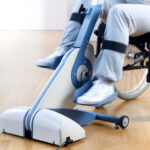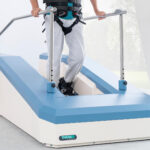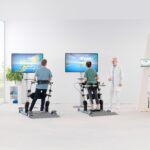THERA-Trainer
Keep moving.
For a life in motion.
Robot-assisted therapy devices and software solutions for all phases of neurological and geriatric rehabilitation.
Yes, we care.
Worldwide, in clinics and every day at home for an active and independent life.
THERA-Trainer products and solutions are the perfect choice for various professional therapy environments, as well as for use at home. Discover how our robot-assisted therapy devices can help you specifically in acute care, rehabilitation, long term care and at home.
Professionals
For healthcare professionals
Patients
For patients & relatives
Products & Solutions
Robotics and motor-assisted technologies for all phases of rehabilitation.

Cycling
Motor-driven passive, assisted and active cycling for legs and upper body.

Standing & Balancing
Static and dynamic standing & balancing as well as fall prevention training.

Gait
Electro-mechanically assisted robotic gait training.

Move: now.
Do you have any questions? Our clinical experts will be pleased to advise you at any time.
We are looking forward to hearing from you.
We make it count: worldwide.
-
 100.000+Installed devices
100.000+Installed devices -
 5Corporate locations
5Corporate locations -
 30+Years of experience
30+Years of experience -
 70+International Partners
70+International Partners
Moving together.
Worldwide, doctors, therapists and, most importantly, patients rely on THERA-Trainer’s unique rehabilitation solutions. Here are some of our trusted partners.




